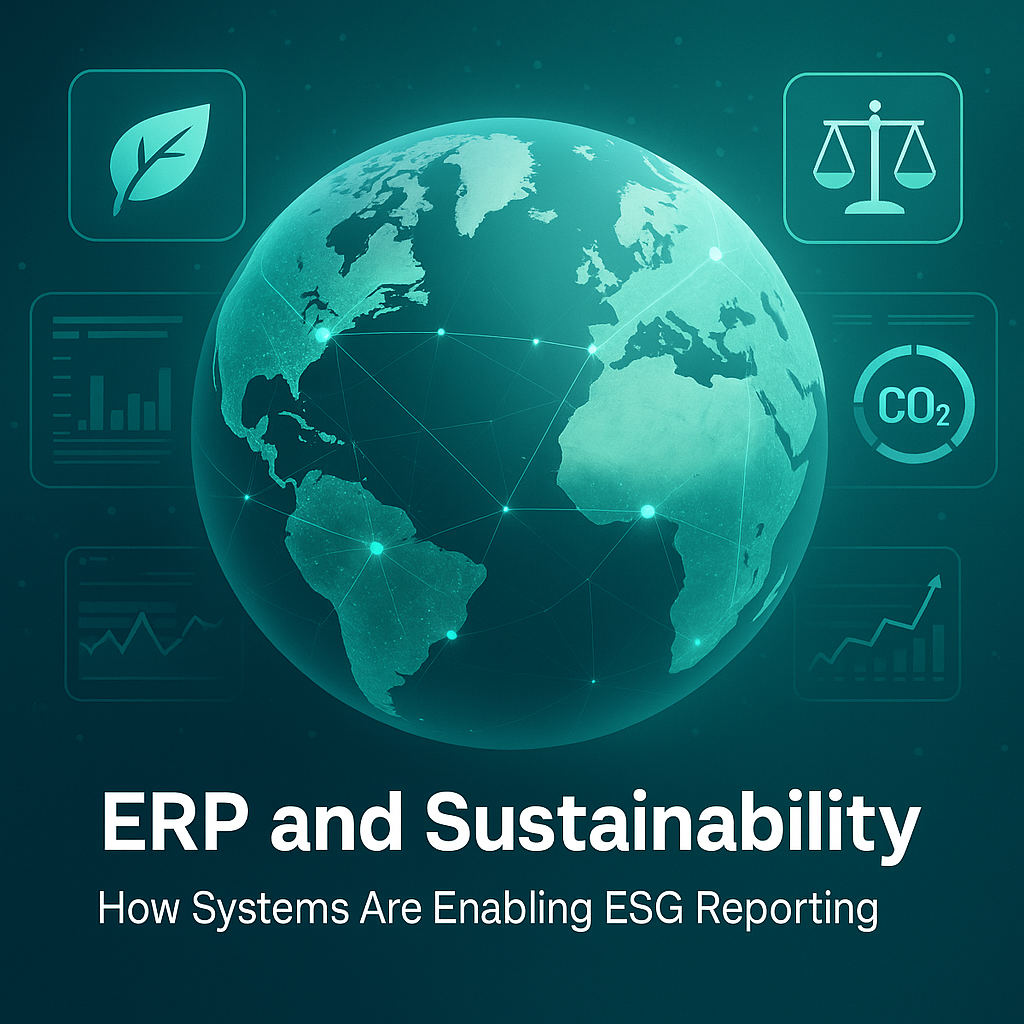
ERP and Sustainability: How Systems Are Enabling ESG Reporting
Sustainability has moved from boardroom buzzword to a regulatory and strategic necessity. Enterprises are under pressure to measure, manage, and report on their environmental, social, and governance (ESG) impact. Modern ERP systems are evolving to meet this demand, embedding tools for carbon tracking, compliance reporting, and ESG analytics directly into the digital core.
1. Why ESG Matters in ERP
Enterprises today must demonstrate:
- Carbon emissions tracking across supply chains.
- Sustainable sourcing and procurement visibility.
- Diversity and social governance metrics.
- Regulatory compliance (e.g., CSRD in Europe, SEC in the U.S.).
ERP is the natural system of record — now expanding to capture ESG data alongside finance, HR, and supply chain.
2. ESG Features Vendors Are Embedding
Leading ERP vendors are enabling:
- Carbon accounting modules to measure scope 1–3 emissions.
- Automated ESG reporting packs aligned to GRI, SASB, and CSRD.
- Supplier sustainability scoring integrated with procurement.
- Real-time analytics dashboards for sustainability KPIs.
3. How ERP Supports Corporate Strategy
Beyond compliance, ERP-powered ESG reporting helps enterprises:
- Strengthen brand reputation with customers and investors.
- Drive operational efficiencies through waste reduction.
- Enable data-driven sustainability strategies.
- Prepare for future regulatory tightening with proactive governance.
4. Challenges to Adoption
- Data availability across complex supply chains.
- Integration gaps between legacy systems and ESG modules.
- Change management to embed sustainability as part of daily operations.
ERP vendors and advisory partners are critical in bridging these gaps.
Conclusion
Sustainability is no longer a “nice to have.” ERP platforms are becoming the backbone of ESG reporting — giving businesses the tools to measure, comply, and lead responsibly in 2025 and beyond.
